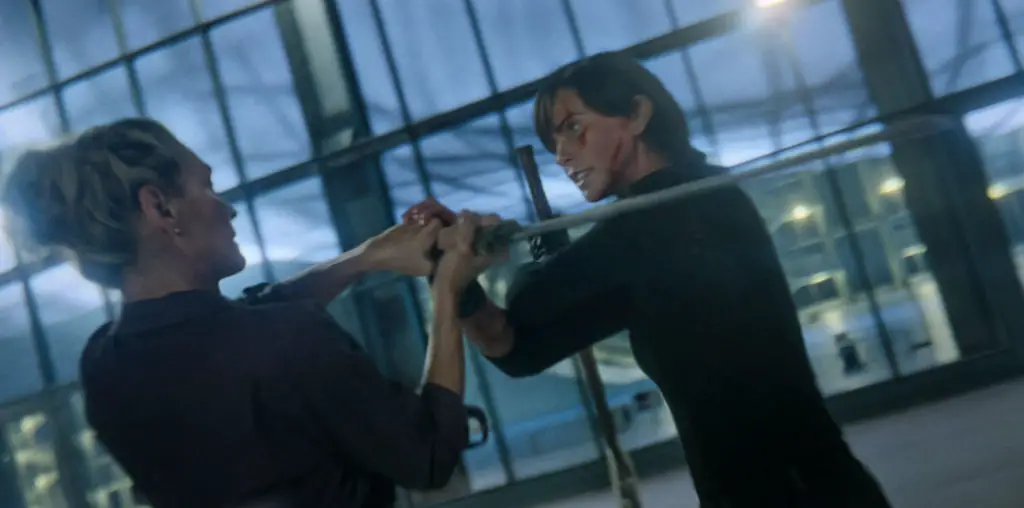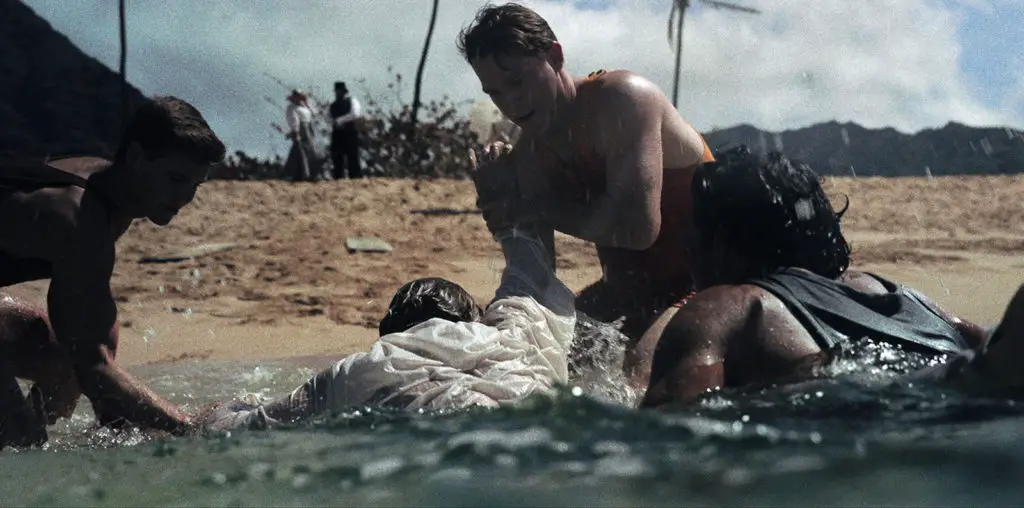
BOOTLEG FILES 482: “Bob Hope’s High-Flying Birthday Extravaganza” (1987 NBC variety special).
LAST SEEN: The broadcast is on YouTube in an unauthorized posting.
AMERICAN HOME VIDEO: None.
REASON FOR BOOTLEG STATUS: The production has not been commercially available since its broadcast.
CHANCES OF SEEING A COMMERCIAL DVD RELEASE: Not likely.
In a 2003 interview with Richard Schickel, Woody Allen praised Bob Hope with uncommonly lavish language. “To me, probably, Bob Hope was the biggest comic influence on my performing,” said Allen. “I always adored him when I was younger, and it’s an adoration that’s never left me to this day.”
Allen, of course, was hardly alone in that opinion. During the 1940s and early 1950s, Hope was the reigning comedy star at the box office, on the radio dial and on television. His popularity, coupled with the goodwill generated by his USO performances for military personnel based around the world – as well as his insistence on entertaining U.S. troops in Vietnam despite growing anti-war sentiment – elevated him to an iconic level that no other performer enjoyed.
However, this level of adulation was sorely tested during the 1980s. By that period, Hope was far past his prime, and his advancing age had a deleterious effect on his performance skills. Sadly, an entire generation of comedy fans came to know Hope primarily from a series of mediocre television specials that aired during the 1980s – and the appeal of these productions was rooted in a so-bad-they’re-good consideration.
Typical of these late-career TV atrocities was something called “Bob Hope’s High-Flying Birthday Extravaganza.” The title actually referred to a pair of birthdays: Hope’s eighty-fourth and the fortieth anniversary of the founding of the United States Air Force. Keeping with his tradition of entertaining the military, Hope staged the show at Pope Air Force Base in North Carolina.
In fairness, Hope rolled out an impressive number of guests for his show: top TV stars of the day (Don Johnson, Phylicia Rashad, Emmanuel Lewis, Kirk Cameron), country music headliners (Barbara Mandrell, Glen Campbell, Alabama), old-time legends (Lucille Ball, Phyllis Diller), and Brooke Shields (who was a regular guest on Hope’s specials during the 1980s). Even President Ronald Reagan got roped into the mix. But the resulting effort was such an enervated experience that it was hard to understand how so many talented people could come together and create so little genuine entertainment.
The special kicked off with Hope’s trademark monologue, which offered scattered slams at ongoing scandals (references to the problems facing Jim and Tammy Faye Bakker and the Johnny Carson-Joan Rivers feud were made). Hope also played to his audience by citing the rivalry between Pope Air Force Base and neighboring Fort Bragg – the comic claimed that Pope sentry guards acknowledged unknown visitors by stating, “Who goes there: friend or Army?” Unfortunately, Hope’s heavy reliance on cue cards diluted the spontaneity of his delivery. And while the military audience seemed to be enthralled by his jokes (or at least that was the effect generated by the conspicuously amplified soundtrack laughter), the home viewers were left numb.
Hope also shared “conversations” with several of his guests, but the genuine laughs were mostly unintentional. Lucille Ball was, arguably, the weirdest guest – her kabuki-worthy make-up, frightful orange wig and shapeless purple gown made her look like a failed drag queen. In comparison, Phyllis Diller in a pink wig and inverted triangle dress looked normal. Don Johnson’s appearance brought squeals from female audience members, though he seemed more focused on reading his cue cards than acknowledging his fans.
The special was punctuated by a few dreary sketches. Hope and Glen Campbell were presented as the Wright Brothers, but in this case the famous siblings bickered over which one would have to fly in their new invention. Campbell was no comedian and his flat line readings of unfunny lines (a coin flip would be decided by “heads you go, tails I stay”) were matched by Hope’s stale reactions. A second sketch was even more painful, with Hope as a military parachutist who lands in a hillbilly farm where siblings Mandrell, Shields and Diller fight over him. Yeah, you can hear that one coming a mile away.
The show’s musical segments featuring Barbara Mandrell, Alabama and Phylicia Rashad helped to distract from the bad jokes. Hope’s wife Dolores was also trotted out to sing a tune (this was another requirement of his late-career specials), with Hope seated in the front row watching his wife’s warbling.
As for President Reagan, he seemed to be the only person on stage that was actually enjoying himself. He gamely participated in light joking with Hope, but then turned serious in saluting the military personnel gathered in the audience. Reagan’s tribute to the men and women in uniform brought the greatest applause from those in attendance, but that high point was followed by having a mammoth birthday cake for Hope wheeled on the stage. Yes, while Hope was fond of his military audiences, he was ultimately more enraptured with himself.
“Bob Hope’s High-Flying Birthday Extravaganza” was broadcast on May 25, 1987 on NBC. Whether or not anyone liked it was irrelevant to NBC, because Hope had a long-term contract with the network and the commercial support of Texaco backing the show – the network glumly allowed Hope air time to fulfill its contractual obligations, even though reviews and ratings were not always favorable.
This special, along with the vast majority of Hope’s TV work, was never rebroadcast after its initial presentation. There has been no home entertainment release of the program, and it seems unlikely this will happen. However, one Hope addict put an unauthorized posting of the show (minus its original commercial) on YouTube. But even die-hard fans of the ski-nosed funnyman will have a hard time appreciating this less-than-stellar production. No thanks for these memories, Bob!
IMPORTANT NOTICE: The unauthorized duplication and distribution of copyright-protected material, either for crass commercial purposes or profit-free s***s and giggles, is not something that the entertainment industry appreciates. On occasion, law enforcement personnel boost their arrest quotas by collaring cheery cinephiles engaged in such activities. So if you are going to copy and distribute bootleg material, a word to the wise: don’t get caught. Oddly, the purchase and ownership of bootleg DVDs is perfectly legal. Go figure!


When I was in high school in the early 80s, we used to joke endlessly about the putrid quality of the Bob Hope specials that were being broadcast at the time. Hope’s TV specials were still amusing through the mid-70s, but after that he really wore out his welcome.
I’m one of the many that recall watching the Bob Hope “specials” during my youth. The ONLY one I remember being any sort of decent was one from either 1986 or 87 in which Danny Thomas and (I think) Milton Berle joined him for a halfway decent show. Of course, if I watched it now, I’d probably get a headache from my constant eye-rolling. Funny how time and memories cloud what was humorous at the time.
Interestingly, Charles Bukowski believed Bob Hope embodied everything wrong with America’s “Mickey Mouse soul” and, at the same time, adored the work of Woody Allen. Big Lynch fan too. Just saying…